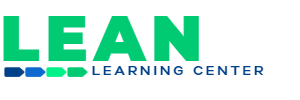Imagine you’ve just stepped onto a plane for an overseas flight. You stow away your luggage, slide into your seat, and settle in for the long trip. As part of the captain’s announcements, he mentions that this is his first overseas flight. “But not to worry,” he says, “I’ve had hundreds of hours of classroom training.”
Confused and a bit anxious, you call over the flight attendant and ask, “This captain has had practice, right? I mean, he’s been through live simulations?”
“Oh, no,” the flight attendant replies. “Just his classroom training. But he graduated at the top of his class, so you have nothing to worry about.”
While this scenario may sound preposterous, this is essentially what happens across most of our professional world, and we rarely bat an eye at these expectations.
Why Practice is Essential
Optimal Performance
Serena Williams’s Masterclass on Tennis reveals that her childhood and young adult training sessions lasted approximately seven hours per day, five days per week. As arguably the best in her sport, she is the poster child for “practice makes perfect.” While these numbers may not be realistic to apply to the business world, they illuminate the importance and effectiveness of sustained and deliberate practice.
Translate Knowledge into Action and Execution
If we think back to our airplane pilot example, it’s not enough that the pilot memorized every flight manual or airplane control panel known to man. If he hasn’t flown a plane before, you’re likely getting off that flight. Starting with simulations and working his way up to hundreds of hours of knowledge application, however, we now have a competent pilot. This is because flight simulations and practice allow the pilot to apply learning to real-life situations. In other words, the pilot can receive and respond to feedback in real-time. Memorizing the steps to something isn’t the same as going through the steps yourself. The marrying of knowledge with experience is crucial.
Enhance Problem-solving Skills
Practice enables us to receive immediate feedback. If we’re practicing for a big presentation and fumble the data, we know we need to focus on further understanding the numbers. This enhanced focus enables us to develop our data analysis skills further. Research shows that this kind of practice enhances performance on the immediate task and transfers our problem-solving abilities to other, more complex tasks.
Bolsters Motivation
Practice gets a bad reputation, especially amongst folks who think they are at their highest peak of intelligence. So, it’s no surprise that people push practice away, thinking that their intellect alone is enough to succeed. However, we’ve all known someone who made a snap decision based on their experience or knowledge that was detrimental to them or their company. The excellent news about practice is that it often leads to cognitive gains in understanding and problem-solving. These cognitive gains feel good, motivating us to practice and intentionally learn from the feedback we receive during and after practice.
At the Lean Learning Center, our programs are built around the best practices for adult learning. We believe that adults learn best through their own discoveries, and a crucial way for adults to make discoveries is through simulated practice. If you’re interested in individual or group lean training, we are ready to help you optimize your potential for excellence.




